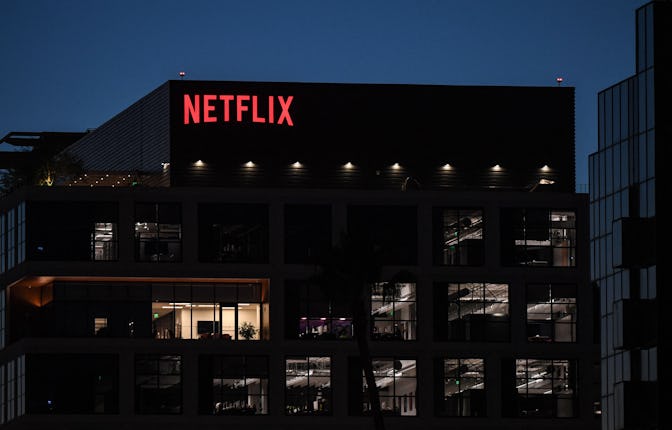Netflix’s trans employees want to change the company, not just the content
They want to make sure transphobia at Netflix is kept in check.

On Wednesday, a group of Netflix employees referring to themselves as Team Trans staged a walkout to rally behind their “list of asks” of cultural and institutional changes for the company. In no way is this demonstration an attack on Netflix; in fact, CEO and Chief Content Officer Ted Sarandos and the rest of Netflix’s brass should see this as a golden opportunity to transform the streaming behemoth into a company that truly champions everyone.
Yesterday, the list of asks from Netflix’s Trans* Employee Resource Group (ERG) was made public. The document’s focus is on making sure the harm caused by Dave Chappelle’s The Closer and its preceding specials never happens again.
One of the ERG’s demands is to change the way Netflix chooses and distributes content, ensuring that the commission and release of potentially “sensitive” content either includes employees who are members of the communities featured, or consults with third-party experts or vendors. Additionally, the ERG wants a bigger role in internal conversations surrounding harmful content, while also having “best in class regional support on complicated intersectional diversity issues.” These two provisions alone would have had Chappelle’s The Closer and other specials flagged and criticized before Netflix even agreed to release them. The company could’ve prevented employees from crashing the company’s quarterly review meeting to voice their issues, way before anyone had the chance to view these programs.
The ERG’s other asks aim to change Netflix’s culture at its core. They request that Netflix recruit trans people for leadership roles and foster an inclusive environment for new hires. Netflix’s first inclusion report, released at the top of the year, touted how 42% of its leadership are individuals from at least one underrepresented racial and/or ethnic background, yet made no mention of any trans employees in such positions.
The lists of asks also looks to secure positive trans content on Netflix by making the streaming giant pay a sort of “trans tax” for hosting transphobic content. In addition to taxing harmful content, the ERG demands Netflix to make the amount of money invested in trans and non-binary content comparable to the amount of money it spends on transphobic content. If Netflix wants to commission another Chappelle special like The Closer, they’re going to have to factor in a similar level of investment in trans content in their budget. That move, in conjunction with the ERG’s increased oversight over harmful content, would either decrease the volume of transphobic content on Netflix or pave the way for a renaissance of sorts for trans and non-binary representation on the platform.
From a monetary standpoint, the ERG also wants Netflix to create funding for the development of trans and non-binary talent, including investments in scripted and unscripted content from multiple trans creators. After Dear White People’s trans showrunner Jaclyn Moore recently boycotted the company due to Chappelle’s special, Netflix is in dire need of mending their relationship with trans creators.
Certain demands highlight previously unknown problematic practices promoted within Netflix’s company culture. The ERG demanded employees be allowed to remove themselves from company promotional videos on issues like allyship and diversity, implying that some employees may have felt Netflix engaged in tokenism by parading around members of underrepresented communities to push the company line about sensitive topics.
Gabrielle Korn, editorial and publishing manager of Netflix’s social media hub for queer storytelling The Most, made an astute clarification of what the walkouts are about. Netflix workers aren’t walking out to go to war with Netflix; they’re walking out to fight for Netflix’s survival and evolution. Often celebrated as a diverse disruption to the white-washed TV landscape, these workers want Netflix to better reflect the world it is expanding to entertain.
If Netflix is smart, it’ll make these changes and move towards truly becoming a streaming service for employees and viewers alike.